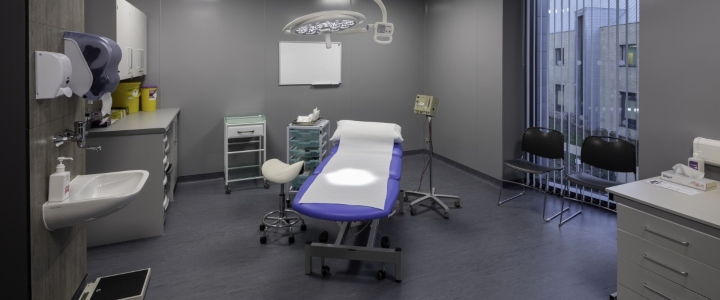
The Ingenuity Process in Action: NHS
Developed by researchers at Nottingham University Business School’s Haydn Green Institute for Innovation and Entrepreneurship, the Ingenuity Process seeks to strengthen the link between imagination and reason. It embeds pre-concept innovation activities in creative problem-solving and decision-making.
One of the most compelling pitches at a recent Nottingham University Business School problem-solving session with more than 400 NHS staff came from a podiatrist. She explained how renal patients, especially those who are also diabetic, are at high risk of losing their legs.
These patients might suffer from circulation difficulties or develop pressure sores from swelling. Their kidney problems mean they don’t heal well, and sometimes numbness might even prevent them realising what is happening until it is too late.
There is considerable evidence of the benefits of preventive treatment, but mobility problems make it hard for patients to attend clinics. Instead they need home visits, which are themselves difficult to arrange because of the amount of time spent on dialysis – sometimes six hours a day for four or five days a week.
But what if dedicated renal podiatrists were allowed to treat patients during dialysis? First and foremost, this would deliver significant benefits to the patients themselves, more of whom could receive in-clinic treatment. In addition, estimates suggest the cost of providing treatment in the trust’s three dialysis units would be less than the cost of a single amputation.
The most palpable change of all has been for the patients. For many a crucial aspect of day-to-day life has been completely transformed.
All it takes is some creative problem solving
Senior management present at the session confirmed the concept was feasible and said they would support it through commissioning routes. The service was up and running just three months later.
As envisaged, practitioners are now able to do their job more effectively and efficiently. A move from acute to preventive treatment has already been noticed. But the most palpable change of all has been for the patients. For many a crucial aspect of day-to-day life has been completely transformed.
The hope originally expressed at the session was that the idea would be realistically affordable, allow staff and patients to interact in a safe environment and prove popular among those receiving treatment.
It has achieved all of these aims, so satisfying the “triple burden” at the heart of modern-day healthcare – achieving cost-effectiveness, attaining the highest standards and ensuring the patient experience is paramount. Like most practical innovations, the idea might appear ridiculously straightforward with the benefit of hindsight. To outsiders it might even seem little more than common sense.
Yet nobody had thought of it before. It emerged from more than 40 related ideas generated during the session. Moreover, this kind of staff-led enterprise has wider consequences. A specific case like this reveals that similar initiatives could succeed elsewhere in a way that would not be revealed from the top down.
All it takes is some structured creative problem-solving by the people who are the most knowledgeable and concerned – in this case frontline clinicians – and the support and opportunity to do so from the organisation itself.



